Deborah Lovely Acason: Women’s weightlifting must be about fairness
The inclusion of a trans weightlifter in the Tokyo Olympics risks driving girls away from the sport, writes weightlifting legend Deb Lovely Acason.
Opinion
Don't miss out on the headlines from Opinion. Followed categories will be added to My News.
This is about fairness and an equal playing field.
I am speaking as a dual Olympian, a five-time Commonwealth Games representative and medallist, as a woman who has competed in the traditionally male-dominated sport of Olympic Weightlifting for 20 years, as a past Australian Weightlifting Federation director, as the first female inducted into the AWF Hall of Fame, as a woman who was part of the first ever women’s weightlifting team to compete at the Commonwealth Games in 2002 (winning three silver medals) and a women who competed against a transgender athlete at the 2018 Gold Coast Commonwealth Games, who weighed almost 50kg more than me.
But perhaps, more importantly, I am speaking as a mother to three young girls.
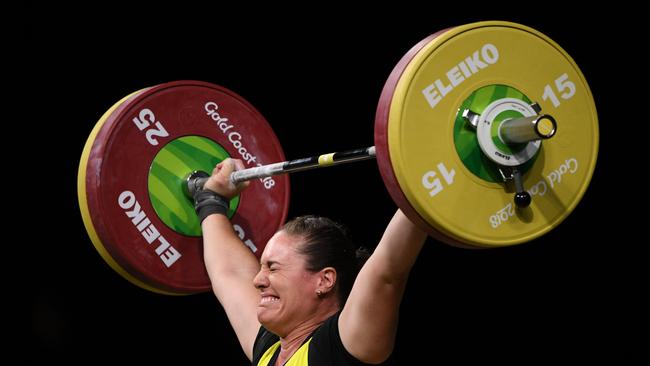
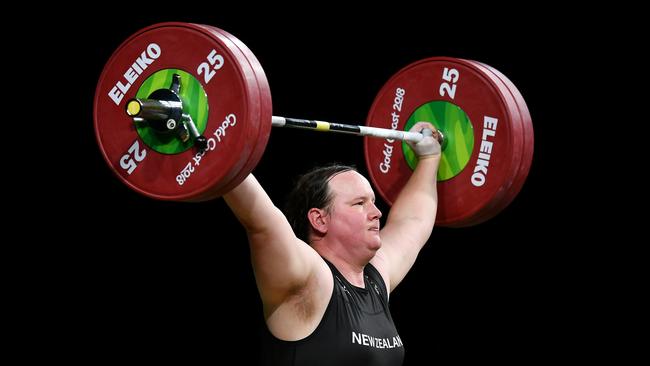
I had chosen to forego surgery in 2016 due to our financial situation but still was able to overcome a serious injury to gain selection to compete at my fifth Commonwealth Games at the Gold Coast.
No weightlifter had yet competed at five Comm Games in weightlifting. I had two young girls aged 6 and 2 and a supportive husband.
This moment at a home Games was going to be my most memorable – even more so than winning the Gold at the last home Games in 2006 Melbourne. This was the first time my whole family from all over the world was in the one place watching me lift for my country.
And what was the only question I was ever asked by the media? Not “how proud are you to represent your country at five Commonwealth Games?” or “how does it feel to be a good role model to your two little girls watching you lift and cheer you on?”
No, it was only ever “what do you think about the transgender lifter?”
Well, after 52 years of waiting for women to earn the right to compete at our first Commonwealth Games in weightlifting, and 104 years of waiting for women to be “allowed” to compete at the Olympic Games, finally it happened.
And now, only a short time later, women’s right to compete in a (biological) women’s only category is again taken away.
This issue is one of fairness.
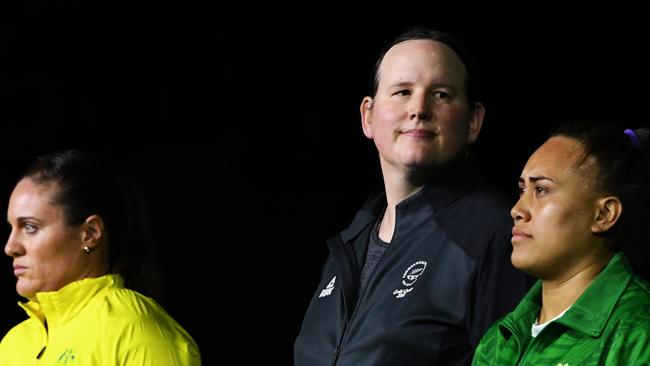
I now personally don’t have anything to lose with this change except I lose the joy of seeing my three girls train hard to compete in sport on a fair playing field.
The scientific studies are clear: the biological/physical advantages men have over women are proven.
Testosterone irreversibly changes one’s muscle fibres to the extent of a significant increase in numbers, not just size or strength alone. Irreversible. Long lasting advantages.
We know that testosterone hormones promote more muscle growth and strength, more numbers of muscle fibres and more efficient and effective (quicker!) recovery time.
I trained for most of my 20 year lifting career in a weightlifting club watching young boys come into the gym having never touched a barbell and within a very short period of time lift similar weights to me and then by their mid to end of teenage years easily out lift me, an elite female lifter.
Watching their muscle mass grow and develop so quickly was frustrating to me, but I accepted it because men and women are different and I can’t (usually) do what a man can do because among other things my body has different hormones since birth than a man.
I started weightlifting at age 14 years and started competing at age 15. I have experienced training and competing at the start of puberty, all the way through puberty, then my body got stronger as I got older and increased my body weight (from 75kg to 90kg).
I limited my training when I was pregnant with both my first two girls, and was breastfeeding each of them while getting back into training.
I can’t tell you how much each of these situations affected my hormones levels, my energy and my ability to train and recover.
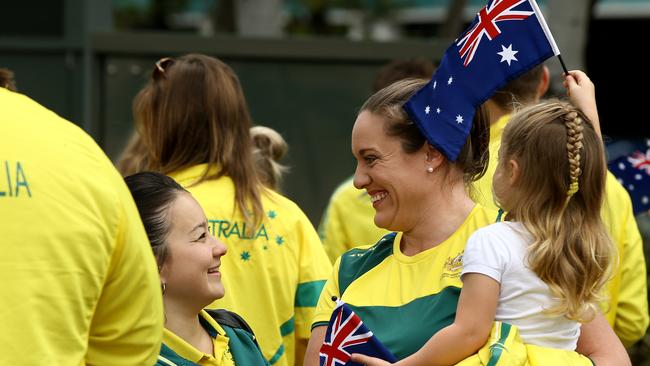
Not even mentioning menstrual cycle each month, meaning at least two to three days of training per month will be significantly reduced to avoid injury (based on scientific research and studies of the female menstrual cycle). It made me realise even more how much of an advantage a male has over a female.
Every sport requires strength and speed and a biological male’s body naturally possesses these qualities over and above a biological female.
The physiological advantage should also be acknowledged.
A person who has already competed in a sport as a male athlete and achieved certain results and then transitions to the female category will have a significant psychological advantage having already achieved those faster/stronger/higher results.
For example in weightlifting, if an athlete has already lifted heavier weights as a male, they are more likely to be able to attempt higher weights than someone who has never previously lifted those weights (ie a female attempting personal bests for the first time).
I was gender tested as a high school girl about to compete at my first world juniors in weightlifting 2001. I had to prove I was a female with a swab test from my mouth. I was given a print out of the result proving I was a female. Without this I would not be allowed to compete.
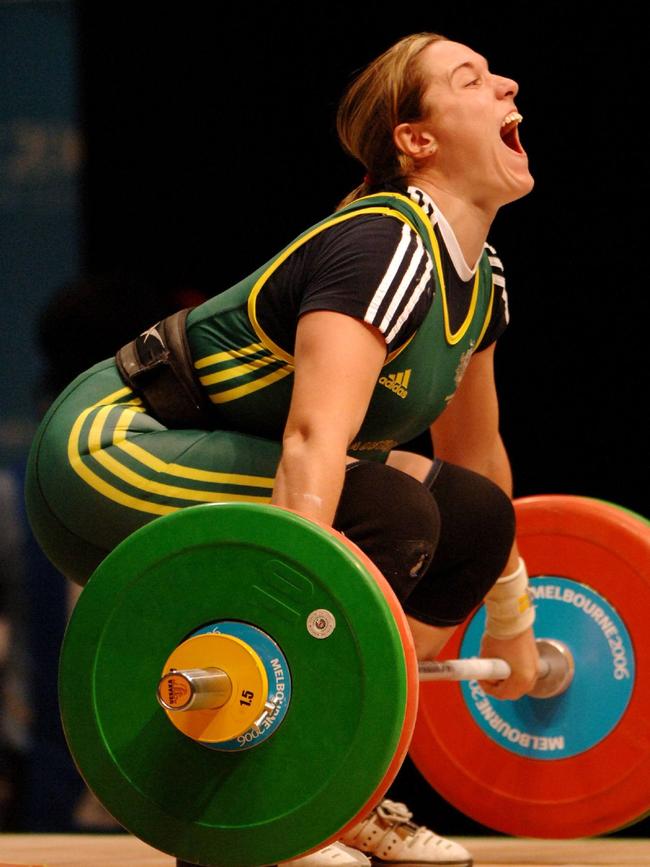
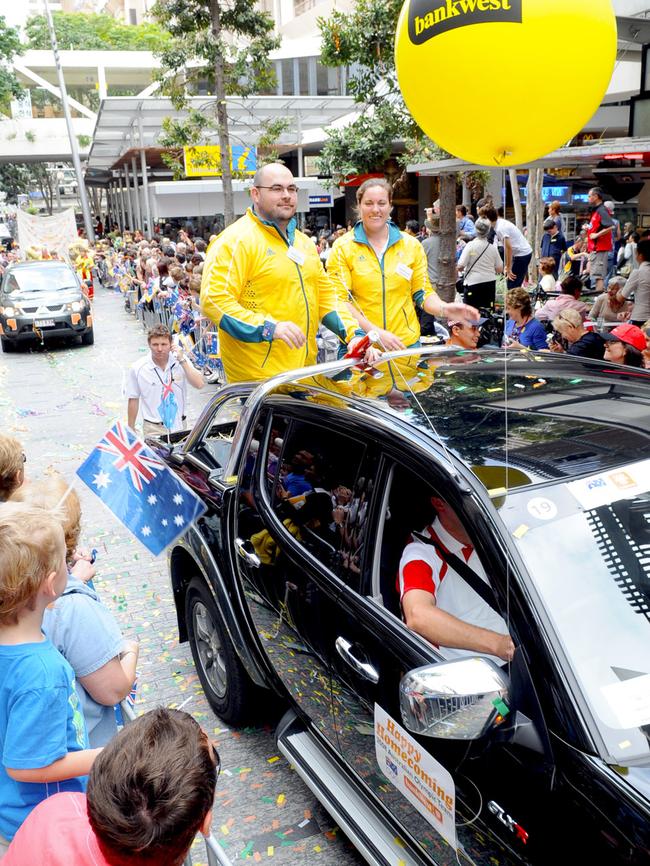
I have also been drug tested by giving blood and urine to drug testers countless times to ensure that among other things my testosterone levels hadn’t exceeded the limits or hadn’t significantly increased (with individual athlete tracking also taking place).
For a few years, my Olympian training partner and I were paid part time through a grant from the Queensland government to get more women and girls into our sport. “Stronger Women” aimed at the talent identification of young girls in high school to try our sport. Have a go.
These girls needed every encouragement to participate and try the sport and very often didn’t want to for various reasons. But mainly they didn’t want to look weak in front of the boys in the group.
Too many girls don’t play sport. Too many girls give up any form of sport after they leave school.
It would be a very sad day in sport if girls won’t participate in certain sports for fear of getting hurt, or if they have to grow up resigned to the fact that they may have to compete against someone with such physical advantage over them.
I am concerned for the fairness of the equal playing field for young girls, for my three girls who may train for years and years in their chosen sport and then one day compete against a transgender athlete and might be injured, or not be selected for an event they’ve been working towards.
Only a couple of years ago the International Olympic Committee was sent a letter by the AWF board of directors on behalf of the Australian Weightlifting Federation outlining many of the concerns outlined above. This letter was never acknowledged by the IOC and the AWF never received a response.
Deborah Lovely Acason has represented Australia in women’s weightlifting at the Olympics and Commonwealth Games, was the former director of the Australian Weightlifting Federation and was the first female inducted into the Australian Weightlifting Federation’s Hall of Fame. She is a mother of three daughters.


